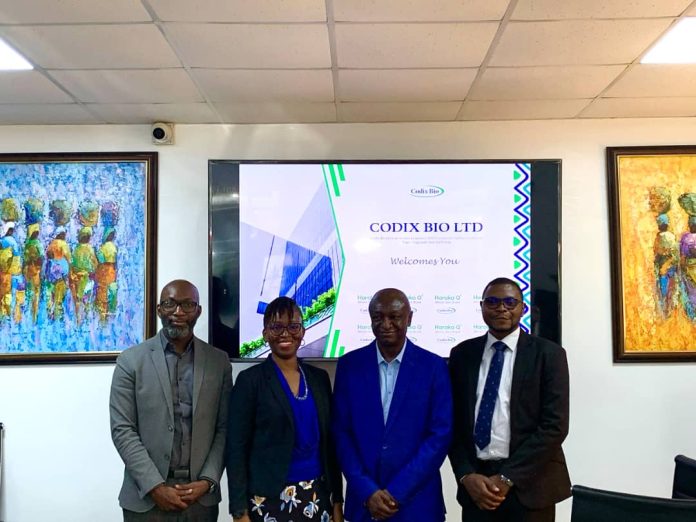In a landmark move for Nigeria’s healthcare sector, Codix Pharma Ltd is set to commission Codix Bio Ltd, a cutting-edge in-vitro diagnostics (IVD) manufacturing facility in Sagamu, Ogun State, by May 2025. The new facility marks a significant leap toward reducing Africa’s heavy dependence on imported rapid diagnostic test kits—currently over 90% sourced from abroad.
Codix Bio will be the first facility of its scale in Nigeria and only the second of its kind in sub-Saharan Africa. It will locally produce test kits for diseases such as malaria, HIV, and hepatitis B and C, positioning Nigeria as a key player in regional medical diagnostics manufacturing.
“This is bigger than us—it’s about what is possible for Africa,” said Mary Ogangwu, Chief Operating Officer of Codix Pharma, at a press briefing in Lagos. “For over two decades, Nigeria has imported these kits. Codix Bio is our answer to that dependency—a local solution to a continental problem.”
Founded in 2008, Codix Pharma initially specialized in pharmaceuticals for diabetes and cardiovascular disease. However, a growing need for timely and accurate diagnosis led to a strategic pivot toward medical diagnostics. Codix Bio is the result of years of backward integration aimed at building domestic capacity in health tech.
The new plant builds on the success of Colexa Biosensor, launched in December 2023, which became the first sub-Saharan facility for blood glucose meter and strip production. Together, the two facilities are central to Codix Pharma’s ambition of becoming a leading African health tech company by 2030.
Ogangwu noted that Codix Bio was built to meet global standards, targeting WHO prequalification and US FDA certification. “We are focused on quality, safety, and efficacy,” she said.
Olanrewaju Balaja, General Manager of Plant Operations at Codix Bio, added that the facility adheres to ISO 13485 and WHO Good Manufacturing Practices (GMP). “We’re producing diagnostic kits that rival the quality of any globally approved product, giving us capacity not only to meet local demand but also to export across West Africa.”
Construction of the facility is complete, including clean rooms and air filtration systems, and is now in its final qualification and validation phase ahead of commissioning.
Codix Bio’s launch aligns with the Nigerian government’s push to localize pharmaceutical and medical device production. As part of this effort, local manufacturers are exempt from tariffs on essential pharmaceutical equipment and supplies. The Coordinating Minister of Health and Social Welfare, Prof. Muhammad Ali Pate, recently set a target to meet 70% of Nigeria’s pharmaceutical needs and 30% of its IVD needs locally by 2030—a vision Codix Bio is poised to help realize.
The World Health Organization (WHO) has also called for increased regional manufacturing of health technologies in low- and middle-income countries. Codix Bio stands as a practical response to this call, offering a sustainable model for improving access, reducing stockouts, and strengthening global health security.
“This is not just a facility—it’s a symbol of what is achievable when innovation meets the right intention. African problems can indeed have African solutions,” Ogangwu said.
Backed by regulators like NAFDAC and supported by national health industrialization policies, Codix Bio represents a transformative step in Nigeria’s journey toward medical self-sufficiency and improved health outcomes.














